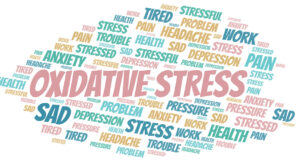Tea can benefit us in reducing inflammation and oxidative stress and reduce the probability of acquiring diseases and other effects of chronic inflammation

BY ASSOC PROF DR TAN TOH LEONG

AND DR KHAIZURIN TAJUL ARIFIN
THE NEXT time you brew your cup of tea, take comfort in knowing that you will be consuming a beverage that has many health benefits.
Tea contains beneficial groups of chemicals, such as flavonoids and polyphenols. Due to these chemicals, consuming tea can either maintain or improve your health. Currently, tea-drinking is beyond cultural practice. It has become a staple in many households and a popular beverage.
The original ‘tea’ comes from the leaves of the plant Camellia sinensis. However, the preparation of tea has evolved from steeping leaves from C. sinensis in hot or even cold water, to using other parts of other plants (flowers like rose, jasmin, peach, butterfly pea; roots like burdock, liquorice, ginseng etc.), and fermenting the tea (Kombucha).
Steeping the plant parts in water releases these beneficial chemicals. Worry not. Polyphenols and flavonoids can be found in almost all parts of plants.
Our body has its mechanism to maintain health. The inflammation process is the first line of defence the body undergoes to protect it.
Oxidative stress
 Inflammation refers to your body’s process of fighting against things that harm it, like infections, injuries, and toxins, to heal itself. The inflammation process is paired with another condition called oxidative stress.
Inflammation refers to your body’s process of fighting against things that harm it, like infections, injuries, and toxins, to heal itself. The inflammation process is paired with another condition called oxidative stress.
Oxidative stress is a phenomenon caused by the disability of detoxifying oxidants in the body. Many studies showed that inflammation induces oxidative stress, or the other way around.
Prolonged or chronic inflammation and oxidative stress can lead to diseases (such as cancer, Alzheimer’s, arthritis etc) and sepsis (the body’s extreme response to an infection). These conditions will affect the quality-of-life health-wise, financially, physically, mentally, and emotionally.
Consuming teas has been said to prevent or improve these debilitating conditions. Luckily, numerous research studies have shown that teas exert anti-inflammatory effects in animals. Based on these studies, a human can also reap the advantages of consuming tea to benefit our health.
In research, Kombucha tea reduced some inflammatory biomarkers, leading to an improved body temperature of mice with sepsis, and improved survival rate. Additionally, the tea supplementation altered the microorganism diversity in the gut and promoted the growth of a type of bacteria that exerts anti-inflammatory effects.
Encouraging research results
In another research using sepsis mice, Yunnan black tea flavonoids increased the survival rate of the mice, and alleviated the higher thinking (cognitive) dysfunction that they endured.
Another research used mice with the aged liver. These mice were given green tea polyphenols. In these mice, the green tea polyphenols effectively improved the liver condition by reducing the swelling associated with ageing, increasing total antioxidant and antioxidant enzyme levels, and reducing oxidative stress.
In one research, the researchers used mice with liver injury. The mice were given green tea, yellow tea, oolong tea, white tea, black tea, and dark tea. All six kinds of tea restored the size of the enlarged liver and lessened the level of injury.
Furthermore, the highly-fermented dark tea significantly reduced inflammation, whereas the unfermented green tea inhibited oxidative stress.
In another research, some mice were induced with inflammation. This time they used an extract from the flower buds of Cleistocalyx operculatus (an important ingredient in herbal tea). The extract reduced inflammation in the mice, and reduced damage of the lung and liver tissues that normally come with inflammation.
These are only some examples of thousands of research done to investigate tea’s health benefits from different parts of plants. The results suggest that tea can be beneficial for us too in reducing inflammation and oxidative stress, hoping to reduce the probability of acquiring diseases and other effects of chronic inflammation.
So, let us drink up! — The Health
Assoc Prof Dr Tan Toh Leong is Senior Lecturer and Emergency Medical Consultant, UKM Medical Center, Universiti Kebangsaan Malaysia (UKM) and President & Founder of Malaysian Sepsis Alliance (MSA) while Dr Khaizurin Tajul Arifin is with the Department of Biochemistry, Faculty of Medicine, UKM and on the committee of MSA.








